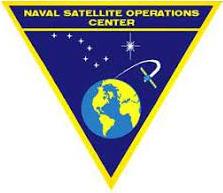Loading AI tools
U.S. Space Force unit From Wikipedia, the free encyclopedia
The 10th Space Operations Squadron (10 SOPS) is the United States Space Force unit responsible for operating the Mobile User Objective System and Ultra-High Frequency Follow-On satellite constellations, providing global communications to the United States Armed Forces.[1][2]
| 10th Space Operations Squadron | |
|---|---|
 Squadron emblem | |
| Active | 1962–present[1] |
| Country | |
| Branch | |
| Role | Satellite communications |
| Part of | Space Delta 8 |
| Headquarters | Point Mugu, California, U.S. |
| Commanders | |
| Commander | Lt Col Jason Sanders |
| Insignia | |
| Naval Satellite Operations Center (1990-2022) |  |
| Navy Astronautics Group (1962-1990) |  |

The first military space operations command in history,[3] the Navy Astronautics Group (e or NAG) was established on May 22, 1962 under the command of CDR J.C. Quillen, Jr.[4] Tasked with operating the Navy's satellites, the unit commanded the Navy Navigational Satellite System, also known as Transit, the world's first satellite navigation system.[5] The Navy Astronautics Group was redesignated as the Naval Satellite Operations Center (NAVSOC) in June 1990.

In September 2021, it was announced that NAVSOC would be transferred from the Navy to the newly-independent US Space Force under Space Delta 8.[6][7][8] On 6 June 2022, NAVSOC was formally disestablished and 10 SOPS assumed its mission, personnel, resources, and heritage in total.[9] According to Space Delta 8, the squadron was given its number to honor its heritage under 10th Fleet.[10]
The unit has operated various types of military satellites, including:
| Constellation | Abbreviation | First launch | Purpose |
|---|---|---|---|
| Transit | NAVSAT or NNSS | 1959 | Navigation |
| Fleet Satellite Communications System | FLTSATCOM or FLTSAT | 1978 | Communication |
| Geodetic Satellite[3] | GEOSAT | 1985 | Earth observation |
| Ultra High Frequency Follow-On | UFO | 1993 | Communication |
| Geodetic Satellite Follow-On[11] | GFO | 1998 | Earth observation |
| Mobile User Objective System | MUOS | 2012 | Communication |
Former site:
Seamless Wikipedia browsing. On steroids.
Every time you click a link to Wikipedia, Wiktionary or Wikiquote in your browser's search results, it will show the modern Wikiwand interface.
Wikiwand extension is a five stars, simple, with minimum permission required to keep your browsing private, safe and transparent.